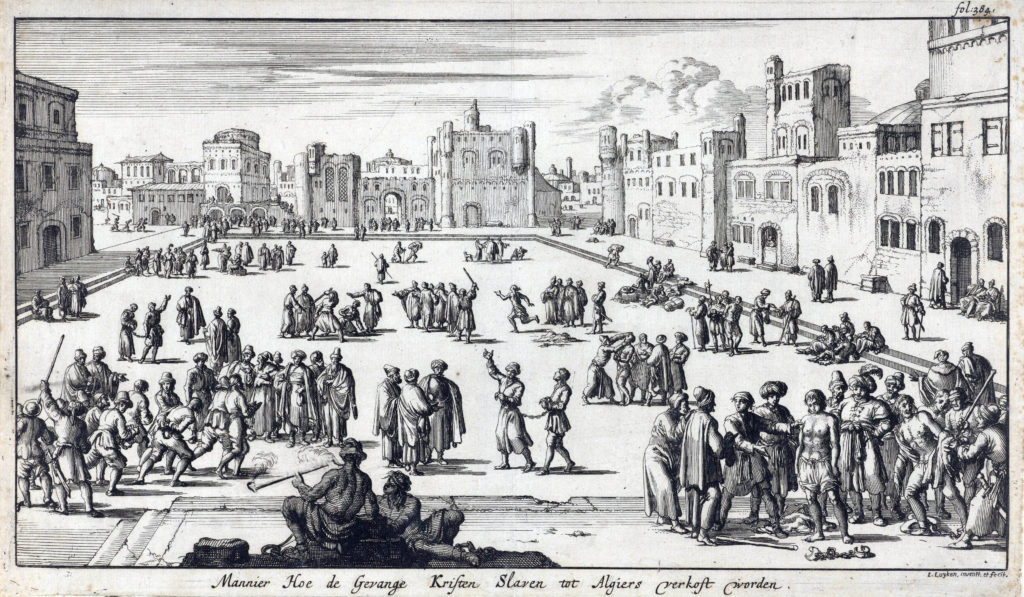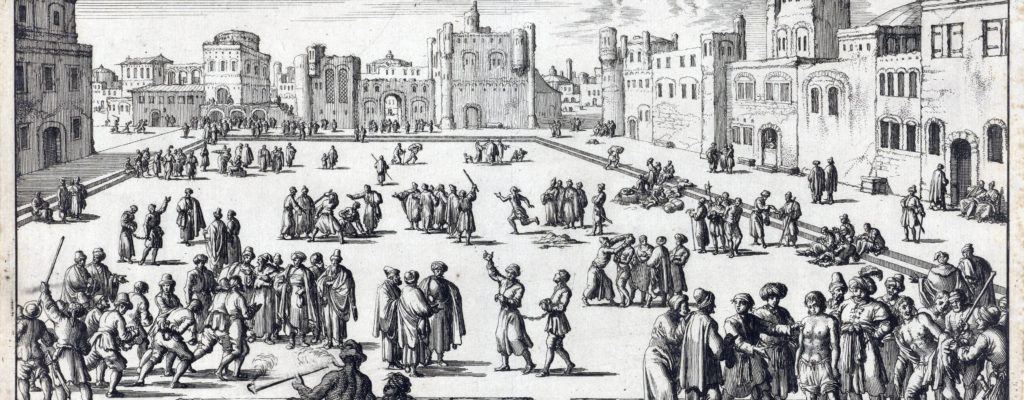
I’m working through a book called White Gold by Giles Milton. It contains a good reminder about the importance of diligent research.
In other words, the author makes a bone-headed mistake.
And it was easy to catch.
He just didn’t do the work.
But I don’t want to be too hard on him. We all make mistakes.
White Gold is a history of the trade in European slaves in North Africa in the 1600’s. The title is a play on the term “black gold” which refers to the West African captives of the trans-Atlantic slave trade, by which many European slave traders became very wealthy.
Milton focuses on the captivity narrative of an Englishman named Thomas Pellow, who was captured and enslaved as a boy, was purchased by the sultan of Morocco, and later managed to return to England, where he wrote an account of his time in slavery.
Milton writes well. He quotes contemporary European sources at length, and mentions a number of events that I haven’t yet encountered in my own research,
Where White Gold falters is in its failure to balance its perspective.
This is often subtle, and occasionally obvious.
On the subtle end, Milton uses a lot of adverbs. For example, a few pages into chapter one, he writes that the corsairs “plundered with abandon” and “ransacked the coastline without pity.” The verbs in these phrases are supported by evidence – the sources do indicate that the corsairs “plundered” and “ransacked the coastline.” But to assert that the corsairs plundered “with abandon” is a different type of claim.
To prove this claim, Milton would have to analyze the corsair’s military strategy.
He would have to offer proof that they didn’t have clear objectives in their attacks.
He doesn’t.
Likewise, to support his claim that the corsairs attacked “without pity,” Milton would have to discuss their emotional life.
He would have to show they lacked empathy.
He doesn’t do this either.
This frequent use of adverbs weakens the book. To be fair, its primary sources – the writings of contemporary Europeans about the Muslims of North Africa – are often heavily slanted to the point of polemic. Still, each unsupported claim undermines White Gold’s authority and trustworthiness as a work of serious history.
Milton makes some significant factual errors as well.
Perhaps the most glaring, easily avoided, and (yes) bone-headed mistake is at the beginning of chapter two.
He writes:
The messenger galloped through the night….Dressed in a billowing djellaba and protected from the chill by a thick veil, he urged his dromedary onward with a stout stick, beating the beast to ride faster and faster. Shortly before dawn on 14 April 1672, he at last glimpsed his goal. In the far distance, lit by a thin shard of moon, were the gates and minarets of Fez.
White Gold
14 April, 1672 was 16 Dhul-Hijjah 1082.
Dhul-Hijjah is the twelfth lunar month of the Hijri year.
In the Hijri calendar, a new month begins when the waxing crescent first becomes visible, and the full moon occurs on approximately the 14th of each month. Thus, on 14 April 1672, the moon would have been been a waning gibbous moon. This moon would indeed have been visible in the early morning hours, and just before dawn it would have been low in the sky, close to the western horizon – but it would have been just past full, not a “thin shard.”
A following passage suggests the source of the error:
…the ruling sultan was dead – killed by his own recklessness. He had been celebrating the end of Ramadan with customary abandon, carousing with friends and drinking deeply from the forbidden bottle. As he charged on horseback through the gardens of his Marrakesh palace, he had fallen from his stallion and “dashed out his brains against an arm of a tree.”
Ramadan is the 9th month of the Hijri calendar
The end of Ramadan – Eid-al-Fitr – had occurred about 2.5 months prior.
However, the Eid-al-Adha occurs on the 10th of Dhul-Hijjah, six days before the date mentioned – 8 April in the Gregorian calendar of that year.
Perhaps Milton’s source referred to “Eid” and Milton assumed that this meant the end of Ramadan. Perhaps Milton’s source also referred to the moon in the sky just before dawn, and Milton assumes that this would be a crescent moon, the “thin shard” that signifies the end of Ramadan.
However, at the beginning of a new month, the new crescent moon is only visible for a few hours after sunset. So, if it had actually been the end of Ramadan, there would have been no moon in the sky in the early morning hours.
Anyway.
Astronomy and calendars are objective fact, and relatively easy to verify.
No researcher wants to let such errors slip through into their finished work.
What’s more, these dates and moon phases are of profound significance in Muslim civilization. These errors suggest a deficiency in Milton’s investigation of the corsairs and the Muslims in general.
White Gold would be much stronger if Milton were more diligent in his attempt to understand the conflict between Europe and North Africa from the perspective of Muslim civilization.
That said, I’ve found the book valuable for many reasons, and I’ll definitely make use of Milton’s bibliography as well as his analysis of these events.

Leave a Reply